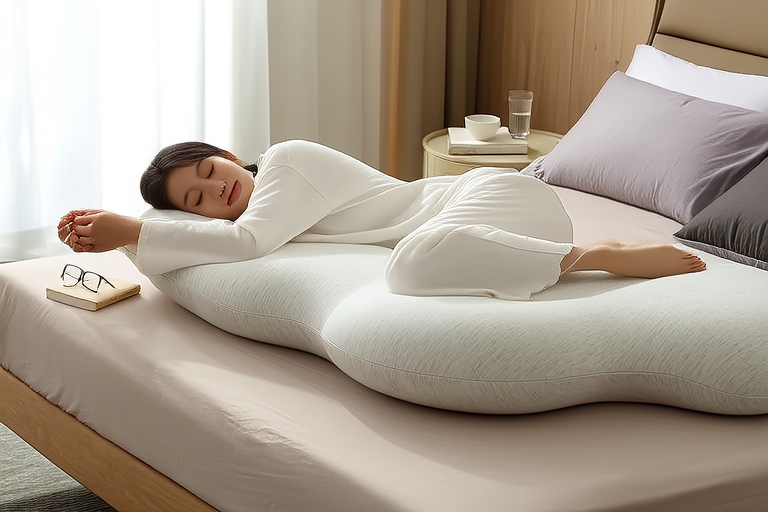Unlocking the Secrets to Restful Nights: Your Ultimate Guide to Sleep Health
Sleep is one of the most essential pillars of overall health, yet it is often overlooked in our fast-paced world. Whether you’re juggling work deadlines, family responsibilities, or social commitments, sacrificing sleep can seem like an easy trade-off. However, chronic sleep deprivation can have far-reaching consequences on both physical and mental well-being. This article aims to unlock the secrets to restful nights by exploring the importance of sleep, common sleep disorders, practical tips for better sleep, and how lifestyle factors like diet and exercise influence sleep quality. By the end, you’ll have a comprehensive understanding of how to create a sleep-friendly environment and prioritize your sleep health.
The Importance of Sleep for Overall Health
Sleep is not just a period of rest; it is a vital biological process that supports nearly every system in the body. During sleep, the brain consolidates memories, processes emotions, and clears out toxins. Physically, sleep plays a crucial role in immune function, hormone regulation, and tissue repair. Chronic sleep deprivation has been linked to a host of health issues, including obesity, diabetes, cardiovascular disease, and weakened immunity.
Mentally, inadequate sleep can impair cognitive functions such as attention, decision-making, and problem-solving. It also increases the risk of mood disorders like anxiety and depression. The benefits of consistent, high-quality sleep are undeniable. People who prioritize sleep tend to have better energy levels, improved focus, and a more positive outlook on life. Understanding the profound impact of sleep on health underscores the need to make it a non-negotiable part of your daily routine.
Common Sleep Disorders and Their Impact
While many people struggle with occasional sleepless nights, some individuals face persistent challenges due to sleep disorders. These conditions can severely disrupt sleep patterns and diminish quality of life. Here are some of the most common sleep disorders:
- Insomnia: Characterized by difficulty falling asleep or staying asleep, insomnia affects millions of people worldwide. Stress, poor sleep habits, and underlying medical conditions can contribute to this disorder.
- Sleep Apnea: A condition where breathing repeatedly stops and starts during sleep, sleep apnea can lead to fragmented rest and daytime fatigue. It is often associated with snoring and requires medical intervention.
- Restless Legs Syndrome (RLS): This neurological disorder causes an uncontrollable urge to move the legs, often accompanied by uncomfortable sensations. RLS typically worsens at night, making it difficult to fall asleep.
- Narcolepsy: A chronic sleep disorder marked by overwhelming daytime drowsiness and sudden attacks of sleep, narcolepsy can significantly disrupt daily activities.
If you suspect you have a sleep disorder, it’s important to consult a healthcare professional. Early diagnosis and treatment can prevent long-term complications and improve your quality of life.
Practical Tips for Improving Sleep Quality
Achieving restful sleep doesn’t have to be complicated. By adopting a few simple habits, you can significantly enhance your sleep quality. Here are some practical tips to consider:
- Stick to a Consistent Sleep Schedule: Going to bed and waking up at the same time every day helps regulate your body’s internal clock. This consistency reinforces your natural sleep-wake cycle.
- Create a Relaxing Bedtime Routine: Engage in calming activities before bed, such as reading, meditating, or taking a warm bath. Avoid stimulating tasks like working or watching intense TV shows.
- Limit Exposure to Screens: The blue light emitted by phones, tablets, and computers can interfere with melatonin production, making it harder to fall asleep. Aim to disconnect from screens at least an hour before bedtime.
- Be Mindful of Caffeine and Alcohol: Both substances can disrupt sleep. Caffeine is a stimulant that can linger in your system for hours, while alcohol may initially make you feel drowsy but ultimately fragments your sleep.
- Get Regular Exercise: Physical activity promotes deeper, more restorative sleep. Just be sure to finish vigorous workouts at least a few hours before bedtime to allow your body to wind down.
By incorporating these habits into your daily routine, you can create a strong foundation for better sleep.
The Role of Diet and Exercise in Sleep
Diet and exercise are two critical components of a healthy lifestyle that also play a significant role in sleep quality. What you eat and how active you are can either support or hinder your ability to get restful sleep.
Diet: Certain foods can promote better sleep, while others may disrupt it. For example, foods rich in tryptophan, magnesium, and calcium—such as turkey, nuts, and dairy products—can help your body produce melatonin, the hormone responsible for regulating sleep. On the other hand, heavy, greasy meals or spicy foods close to bedtime can cause indigestion and make it harder to fall asleep. Staying hydrated throughout the day is also important, but try to reduce fluid intake in the evening to avoid frequent nighttime bathroom trips.
Exercise: Regular physical activity has been shown to improve sleep duration and quality. Exercise reduces stress and anxiety, which are common culprits of sleep disturbances. It also helps regulate your circadian rhythm, making it easier to fall asleep and wake up naturally. While any form of exercise is beneficial, activities like yoga and tai chi are particularly effective for relaxation and stress reduction.
Remember, balance is key. Overeating, undereating, or overexerting yourself can all negatively impact your sleep. Strive for a balanced approach to diet and exercise to support your sleep health.
Strategies for Creating a Sleep-Friendly Environment
Your sleep environment plays a crucial role in how well you rest. A comfortable, calming space can make it easier to fall asleep and stay asleep throughout the night. Here are some strategies to optimize your bedroom for sleep:
- Invest in a Quality Mattress and Pillows: Your bed should provide adequate support and comfort. If your mattress is old or uncomfortable, it may be time for an upgrade.
- Control Light and Noise: Use blackout curtains to block out external light, and consider a white noise machine or earplugs to minimize disruptive sounds.
- Regulate Temperature: A cool room—ideally between 60-67°F (15-19°C)—is conducive to sleep. Adjust your thermostat or use breathable bedding to maintain a comfortable temperature.
- Declutter Your Space: A tidy, organized bedroom can promote a sense of calm and relaxation. Remove unnecessary items and keep your sleeping area free of distractions.
- Incorporate Soothing Scents: Aromatherapy with essential oils like lavender or chamomile can help induce relaxation and prepare your mind for sleep.
By creating a sleep-friendly environment, you signal to your body that it’s time to unwind and rest, setting the stage for a peaceful night’s sleep.
Conclusion
Sleep is a cornerstone of health and well-being, yet it is often neglected in our busy lives. Understanding the importance of sleep, recognizing common sleep disorders, and implementing practical strategies can transform your nights and, by extension, your days. Prioritizing sleep hygiene through consistent routines, a balanced diet, regular exercise, and a comfortable sleep environment can lead to profound improvements in your overall quality of life.
Remember, restful nights don’t happen by accident—they require intention and effort. By unlocking the secrets to sleep health, you empower yourself to live a healthier, happier, and more productive life. So tonight, take a step toward better sleep. Your body and mind will thank you.










